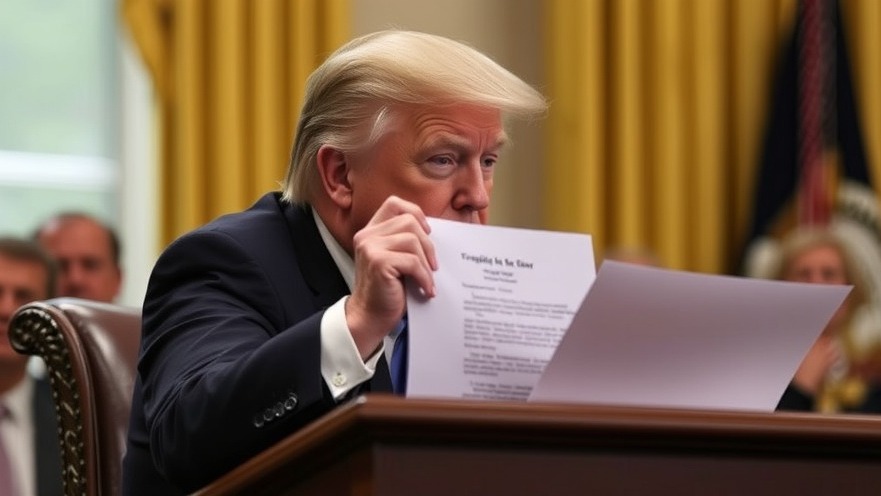
Understanding the Impact of the New Executive Order
The recent Executive Order by the White House marks a significant step in the U.S. government's commitment to protect its citizens from wrongful detention abroad. This decision is crucial as it aims to streamline diplomatic efforts to negotiate the swift release of U.S. nationals unjustly held in foreign countries. By focusing on robust diplomatic channels and ensuring that affected families receive necessary support, the order sets a clear message: the U.S. will take all available measures to safeguard its citizens' rights and safety.
Why This Order Matters: A Contextual Overview
Historically, wrongful detentions have sparked international outrage, drawn diplomatic tensions, and complicated foreign relations. An example is the detention of U.S. citizens in contentious regions, which has previously prompted extensive federal responses. This order acknowledges that wrongful detentions not only affect the individuals involved but also have profound implications for national security and international diplomacy.
Connecting With A Broader Audience: Implications for Americans Abroad
As Americans increasingly travel, work, and engage internationally, the relevance of this order resonates even more profoundly. Today's global landscape is marked by heightened geopolitical tensions. Hence, many citizens feel uneasy about their safety while traveling abroad. This executive order could help ease those concerns, as it underscores the government's proactive stance toward protecting its nationals.
Future Predictive Insights: What Lies Ahead?
Moving forward, this initiative is expected to strengthen alliances with countries that are often involved in diplomatic relations affecting detainees. Experts anticipate enhanced training for diplomats, ensuring they are better prepared to handle crisis situations effectively. Additionally, the government might consider developing more comprehensive guidelines for U.S. citizens traveling to at-risk countries, promoting awareness and preparedness.
Counterarguments and Diverse Perspectives: Examining the Risks
While the executive order represents a significant stance defending citizens' rights, critics argue that it may inadvertently lead to increased expectations for the U.S. government’s intervention. Some experts suggest that fostering dependency on rapid government action could lead citizens into risky situations overseas. However, the overarching view remains that citizens should be entitled to governmental support when facing unjust detentions.
Actionable Insights: How U.S. Citizens Can Stay Informed
U.S. citizens are urged to stay informed regarding travel advisories and national security updates from the government. Resources such as the State Department's travel pages provide real-time updates that can inform travel decisions, highlighting regions where detentions may be more common. Furthermore, understanding emergency protocols can prepare citizens for unforeseen circumstances.
Conclusion: A Collective Responsibility for Awareness
The implementation of this executive order is a pivotal step toward bolstering national and international trust. As the U.S. government takes responsibility for its nationals' safety, it simultaneously urges citizens to exercise caution and awareness in their travels. By understanding the implications of this order and remaining informed about international policies, American citizens can contribute to their safety while abroad.
 Add Element
Add Element  Add Row
Add Row 



Write A Comment